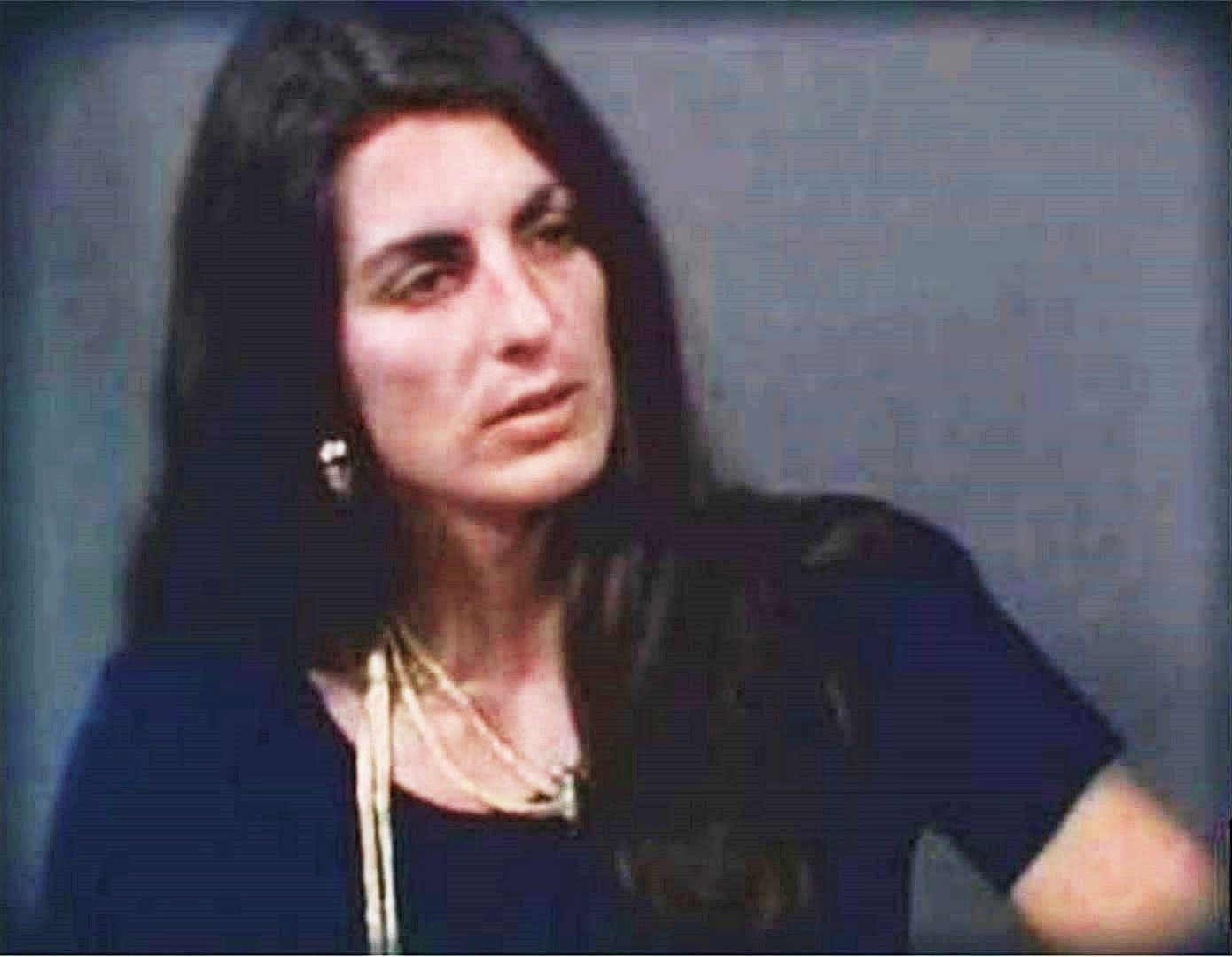On July 15, 1974, the world witnessed one of the most shocking moments in broadcasting history when Christine Chubbuck took her own life live on air. This event sent shockwaves through the media industry and society at large, sparking conversations about mental health, journalistic integrity, and the pressures faced by those in the public eye. Today, we revisit this pivotal moment to understand its significance and the lessons it teaches us.
Before diving deep into the story, it's important to recognize that discussing Christine Chubbuck's suicide is not just about recounting a tragic event; it's about understanding the broader implications of mental health awareness, the evolution of media ethics, and the human stories behind the headlines. Her story serves as a stark reminder of the importance of compassion and empathy in journalism.
This article aims to provide a comprehensive look at Christine Chubbuck's life, the circumstances surrounding her death, and the lasting impact of her actions on the media landscape. By exploring her journey, we hope to shed light on the challenges faced by individuals in the media industry and the need for better support systems.
- Noarmsgirl Leaks The Untold Story Behind The Viral Sensation
- Hdhub4utv Your Ultimate Destination For Highquality Entertainment
Table of Contents
- Biography of Christine Chubbuck
- Early Life and Career
- Mental Health Struggles
- Pressure in the Media Industry
- The Live Event
- Aftermath and Reactions
- Impact on Media Ethics
- Mental Health Awareness
- Christine Chubbuck's Legacy
- Conclusion
Biography of Christine Chubbuck
Before we delve into the events that led to her tragic end, let's take a moment to understand who Christine Chubbuck was. Born on June 18, 1944, in Cincinnati, Ohio, Christine was an ambitious young woman with a passion for journalism. Her career in television news was short but impactful, leaving a lasting impression on those who worked with her.
Early Life and Career
Christine grew up in a modest household and developed a keen interest in storytelling from a young age. After graduating from Bowling Green State University with a degree in communications, she embarked on her journalism career. By 1974, she was working as a reporter and news anchor for WXLT-TV, a local news station in Sarasota, Florida.
Despite her talent and dedication, Christine faced numerous challenges in her career. The male-dominated world of journalism at the time often made it difficult for women to rise through the ranks. Her determination, however, set her apart from her peers.
- Sydney Sweeney Deepfake The Truth Unveiled Facts And Ethical Concerns
- Bollyflix 3 Your Ultimate Guide To The Latest Blockbuster Sensation
Biodata of Christine Chubbuck
| Full Name | Christine Beatrice Chubbuck |
|---|---|
| Birthdate | June 18, 1944 |
| Birthplace | Cincinnati, Ohio, USA |
| Profession | Journalist, News Anchor |
| Education | Bowling Green State University |
Mental Health Struggles
Behind the scenes, Christine battled with severe depression and other mental health issues. In the 1970s, mental health was not discussed openly, and there were limited resources available for those in need. Christine's struggle was compounded by the high-pressure environment of television news.
Her colleagues noticed changes in her behavior, but without proper support systems in place, her mental health deteriorated. This highlights the importance of recognizing the signs of mental health issues and providing timely support.
Signs and Symptoms
- Withdrawal from social interactions
- Increased anxiety and stress
- Difficulty concentrating on work
- Expressions of hopelessness
Pressure in the Media Industry
The media industry in the 1970s was fiercely competitive, with stations vying for higher ratings and more sensational stories. This created immense pressure on journalists like Christine to deliver content that would capture audiences' attention.
Christine was known for her commitment to ethical journalism, often clashing with management over the need to report on serious issues rather than chasing sensational headlines. This tension between her ideals and the demands of the industry added to her stress.
Impact of Ratings Pressure
- Increased focus on sensationalism over substance
- Shortened news segments to accommodate advertisements
- Pressure to compromise journalistic integrity
The Live Event
On that fateful day in July 1974, Christine Chubbuck's life tragically intersected with the world of live television. During a news broadcast, she pulled out a revolver and took her own life in front of the camera. The event was shocking and unprecedented, leaving viewers and colleagues stunned.
This moment, while tragic, became a turning point in discussions about mental health and media responsibility. It forced the industry to confront the pressures placed on journalists and the need for better support systems.
Details of the Event
Christine began her broadcast as usual, delivering the news with professionalism. Midway through the segment, she paused, addressed the camera, and then proceeded to take her own life. The footage was quickly cut off, but the impact was immediate and profound.
Aftermath and Reactions
In the aftermath of the event, there was a mix of shock, grief, and outrage. The media industry faced scrutiny for its role in creating an environment where such an event could occur. Questions were raised about the ethical responsibility of broadcasters and the need for mental health support for journalists.
Colleagues and friends of Christine spoke out about her struggles, bringing attention to the importance of addressing mental health in the workplace. This tragedy became a catalyst for change, albeit a painful one.
Public Reaction
- Outpouring of grief from viewers and colleagues
- Calls for improved mental health support
- Increased awareness of the pressures faced by journalists
Impact on Media Ethics
Christine Chubbuck's suicide had a lasting impact on media ethics. It prompted a reevaluation of the industry's practices and the need for greater accountability. Broadcasters began to prioritize the well-being of their employees and the ethical implications of their content.
Today, media organizations are more aware of the importance of mental health support and ethical journalism. While progress has been made, there is still work to be done to ensure that journalists are supported in their demanding roles.
Key Changes in Media Ethics
- Increased focus on employee mental health
- Development of ethical guidelines for content
- Greater emphasis on balanced and responsible reporting
Mental Health Awareness
Christine's story continues to resonate today as a reminder of the importance of mental health awareness. Her tragedy has inspired initiatives aimed at reducing the stigma surrounding mental health issues and promoting open conversations about them.
Organizations and individuals alike are working to create environments where mental health is prioritized and supported. This includes providing resources, training, and support systems for those in need.
Resources for Mental Health
- Employee assistance programs
- Mental health hotlines and counseling services
- Workshops and training on mental health awareness
Christine Chubbuck's Legacy
Though her life was tragically cut short, Christine Chubbuck's legacy endures. She remains a symbol of the challenges faced by journalists and the need for ethical standards in media. Her story continues to inspire change and promote awareness of mental health issues.
By remembering Christine's story, we honor her memory and strive to create a world where mental health is recognized and supported. Her legacy serves as a call to action for all of us to be more compassionate and understanding.
Conclusion
In conclusion, Christine Chubbuck's suicide was a watershed moment in the history of journalism and media ethics. It highlighted the importance of mental health awareness, ethical reporting, and the need for better support systems in the media industry.
We invite you to reflect on her story and consider how we can all contribute to a more supportive and compassionate society. Share this article with others, engage in discussions about mental health, and take action to promote awareness and understanding.
Together, we can honor Christine's memory by working towards a world where mental health is prioritized and supported. Let's continue the conversation and make a difference.
- Sabrina Banks Leak The Untold Story And What You Need To Know
- A Deep Dive Into Ai Undress The Controversial Tech Everyones Talking About


